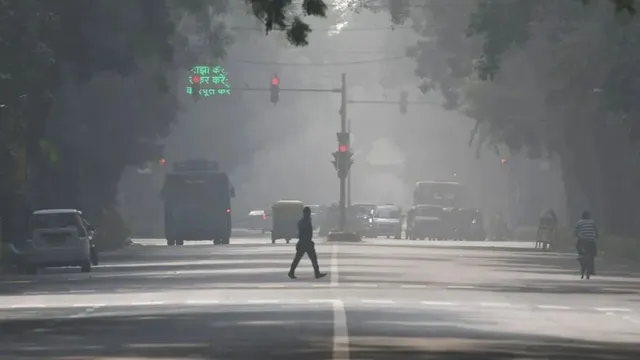- By Aditya Jha
- Tue, 17 Dec 2024 08:15 AM (IST)
- Source:JND
Weather Update: The India Meteorological Department (IMD) on Tuesday issued a yellow alert for Delhi NCR, stating that the national capital will experience a significant dip in temperature, a cold wave, and dense fog in the upcoming days. While most of the Northern states are expected to experience a cold wave and dense fog, southern states like Tamil Nadu are expected to receive rainfall amid the weather change.
The weather department stated that while the minimum temperature in Delhi due to the cold wave is expected to be around 4 degrees Celsius, the maximum temperature will remain around 22 degrees Celsius. The residents of the state are expected to face difficulties because of the dense fog, especially from December 17. In a guideline, the daily commuters were warned to drive the vehicles with extreme carefulness.
However, the weather department forecast that a part of Uttar Pradesh might get temporary relief from the extreme cold because of a change in the wind pattern. It further stated that many of the regions, including Gonda, Shrawasti, Bahraich, Lakhimpur Khiri, Barabanki, Ayodhya, Moradabad, and Rampur, are expected to face extreme cold waves.
One of the scientists of the Patna weather department emphasized that the temperature in Northern states might dip further because of the snowfall in states like Himachal Pradesh and Uttarakhand. The IMD has forecast that temperature changes are anticipated in East and West India, signaling the onset of harsher winter conditions.
ALSO READ: Tamil Nadu Weather: Very Heavy Rain Likely In Coastal Districts From Tomorrow; Check IMD Forecast
However, the IMD stated that most of west-central India, as well as parts of northeast India, are expected to receive above-normal rainfall throughout December. The coastal regions of Tamil Nadu and Puducherry are expected to receive light rainfall in the upcoming days.
These areas are also likely to experience a dip in temperature because of the rainfall. The fishermen and residents of the coastal regions were advised to follow the guidelines and local advisories.

